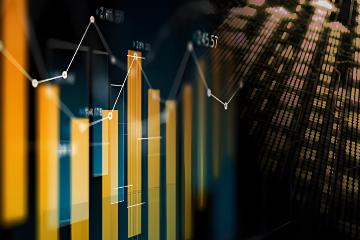Bank of Japan to Raise Interest Rates Next Week
Advertisements
As the economic landscape shifts dramatically in Japan, speculation runs rife ahead of the Bank of Japan's monetary policy meeting scheduled for January 24. The prevailing sentiment among market analysts and economists suggests that an interest rate hike is imminent, with many pointing towards a potential increase to 0.5%, which would mark the highest rate in 17 yearsVarious reports, including one from HSBC, bolster this prediction, highlighting a critical consensus that changes in monetary policy are not just possible, but likely.
The momentum towards raising rates stems from several interwoven factors, with nearly 75% of observers predicting a hawkish tilt from the Bank of JapanAs reported in recent Bloomberg surveys, the confidence in the likelihood of this increase is palpable among those who analyze Japan's economic indicatorsEconomist Taro Kimura articulated that the circumstances would make it difficult for the central bank to opt against raising rates, primarily because the economic performance is aligning with the Bank's expectations—a situation that could keep inflation on course towards its targeted levels over the coming years.
The context for this forward trajectory is underscored by ongoing wage growth patterns and the uncertainty surrounding US economic policies
Advertisements
Bank of Japan Governor Kazuo Ueda has articulated that these two factors form the backbone of the decision-making process heading into the meetingRecent signals from the central bank’s leaders indicate an optimistic outlook on wage increases, a sentiment that has not been felt in years.
Since the last meeting in December, the cost of living has surged, and economic recovery, albeit gradual, is becoming more noticeableAnalysts are unanimous in their belief that Japan’s current economic and inflationary landscape advocates for hiking borrowing costs in the upcoming meetingThe prevalent anxiety tied to the Japanese Yen's depreciation also plays a pivotal role in this discourse, having drawn attention from market watchers and economists alike.
A recent survey disclosed that 69% of economists believe the Yen's ongoing weakening significantly heightens the probability of a rate increase
Advertisements
With the Yen plunging to a six-month low against the US dollar and nearing the psychologically critical threshold of 160, market concerns have only intensifiedHowever, the outlook shifted somewhat as expectations of an imminent interest rate hike bolstered the Yen, interrupting its downward spiral and stabilizing it against the dollarAt the time of this writing, the USD/JPY rate stands at 155.75, leaving investors and analysts alike eagerly tracking the Yen's trajectory and the overarching implications of the central bank's policies.
Eiji Kitada, chief economist at a research institute, remarked that the Yen's precarious positioning near 160 becomes an additional impetus for the Bank of Japan to elevate ratesDespite this, a significant portion of economists remains skeptical that external shocks could derail the global economic outlook prior to the Japan meetingAbout a quarter acknowledge the possibility of such disruptions, while others remain uncertain about future developments
Advertisements
Masamichi Adachi, chief Japan economist at UBS Securities, emphasized that the financial market's condition in the lead-up to the meeting would be paramount in influencing the Bank's decision-making processWithout any external shocks, an interest rate hike is within the realm of possibility.
The robust wage growth and signs of economic recovery seem to paint a convincing picture supporting the urgency for a rate increaseHSBC anticipates that the monetary policy rate will rise to 0.5% at the January 24 meeting, attributing this to Japan's sustained economic activity and price performanceIf the Bank were to delay such a decision, it could risk undermining its credibility as a monetary authority.
Recent regional economic reports indicate a marked change in corporate attitudes towards wage increases, with more businesses announcing positive intentions to enhance salariesThe growing optimism regarding job compensation reflects broader economic sentiment and a rebound in consumer confidence.
However, procrastination in policy-making could introduce its own risks
- Why Is the US Market Bullish Amid Slower Profit Growth?
- Eurozone May Continue Rate Cuts
- Can Mebon's Rally Continue?
- Fed to Raise Interest Rates
- The Definitive Guide to Value Investing
The Bank’s cautious consideration surrounding possible market volatility from the forthcoming U.Sadministration's inaugural address on January 20 might be understandingly prudent, yet failing to act could lead to increased pressure on exchange rates and import prices, potentially impacting consumer sentiment and overall market confidenceThe report also suggests that this spring's labor negotiations may not be a necessary condition for a rate hike, with lower domestic political risks and budget discussions expected to have minimal immediate effect on the economy.
Looking forward to the January meeting, there’s a chance the Bank of Japan will adjust its inflation forecasts, driven primarily by the Yen's devaluation and rising food pricesAlthough risks associated with price increases remain skewed upward, a recovering domestic economy is expected to alter corporate pricing behaviors positively

Leave a Reply
Your email address will not be published. Required fields are marked *